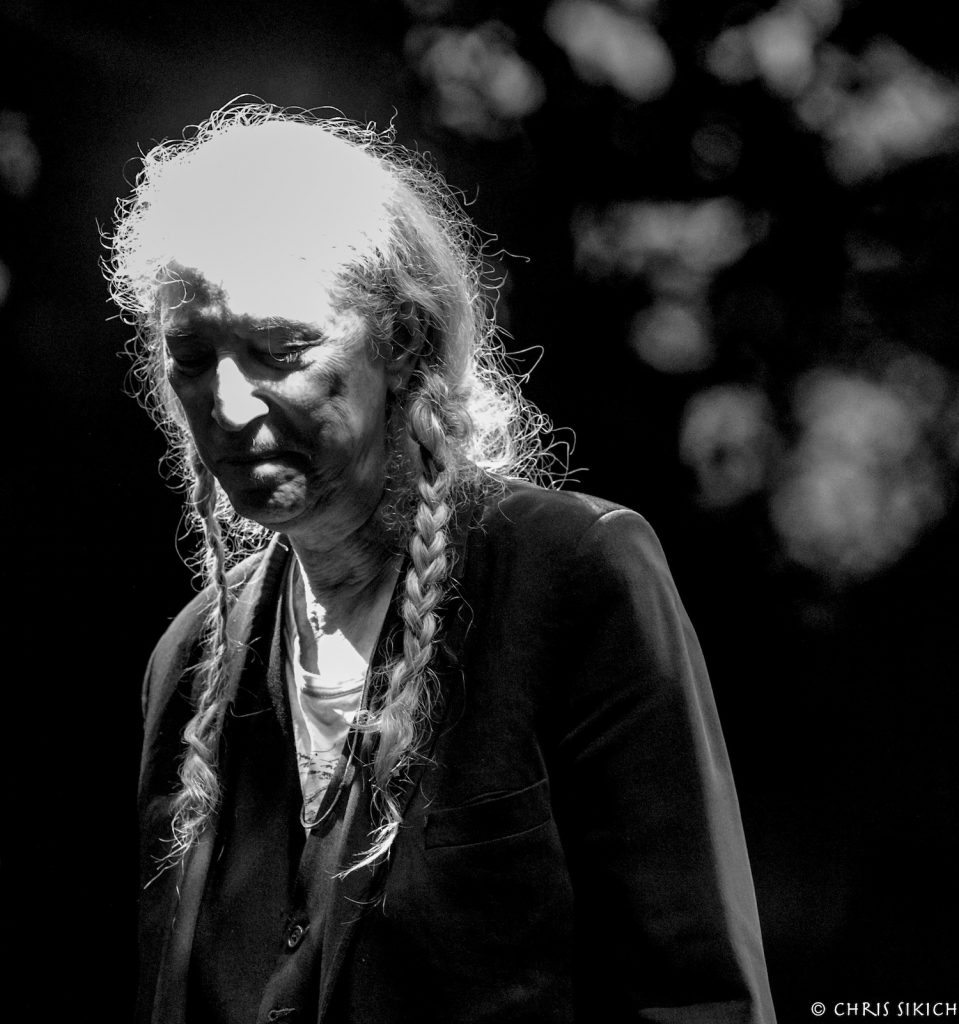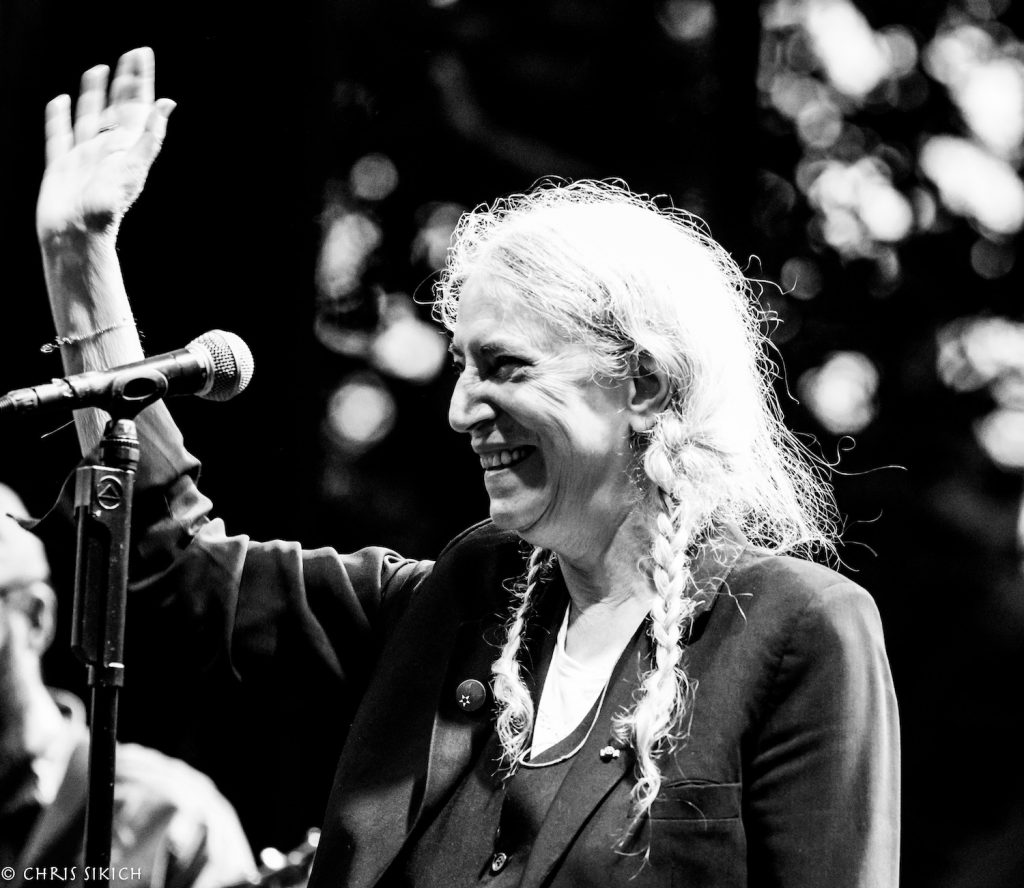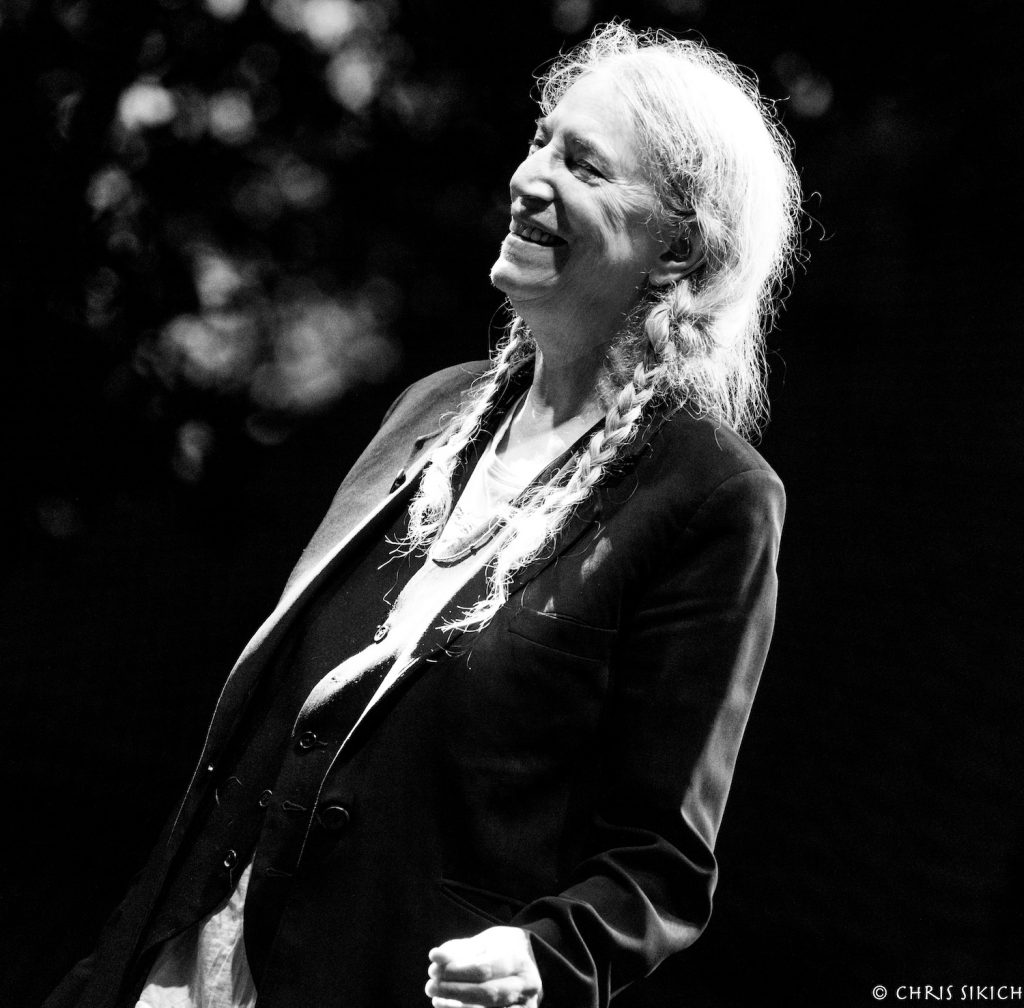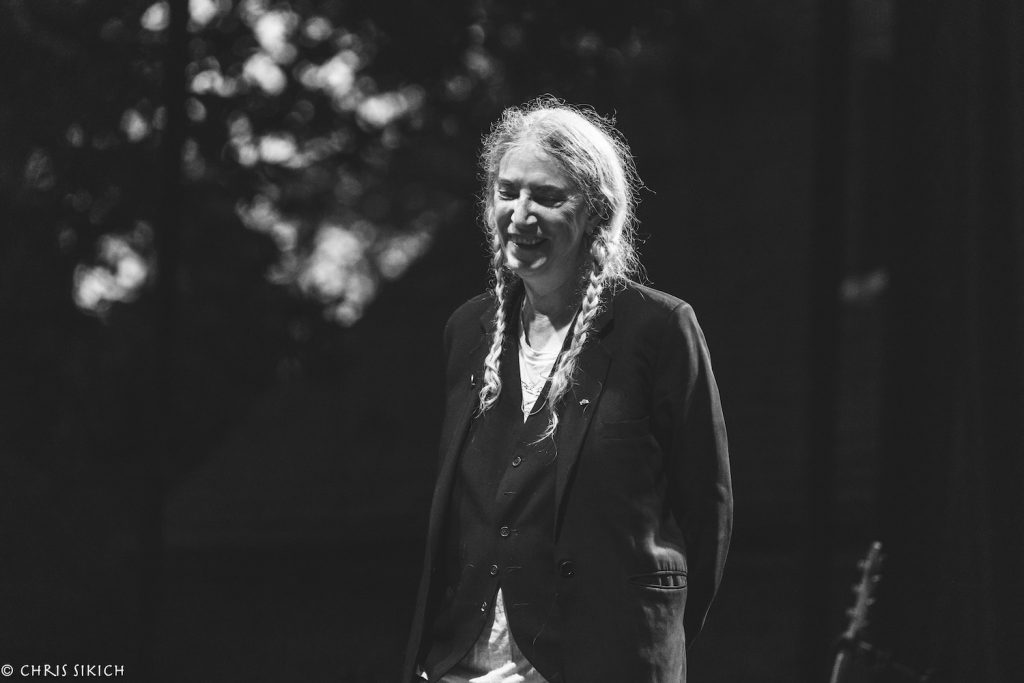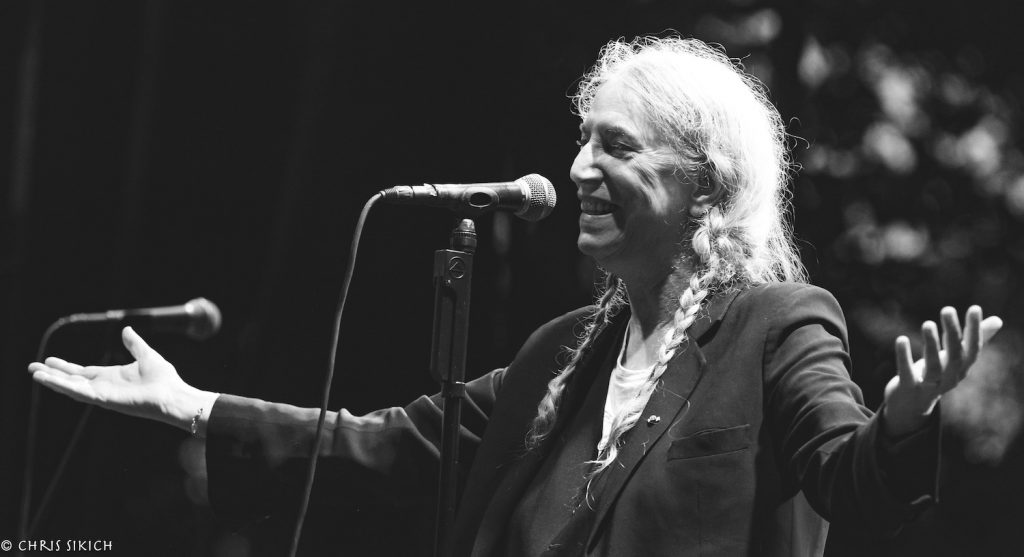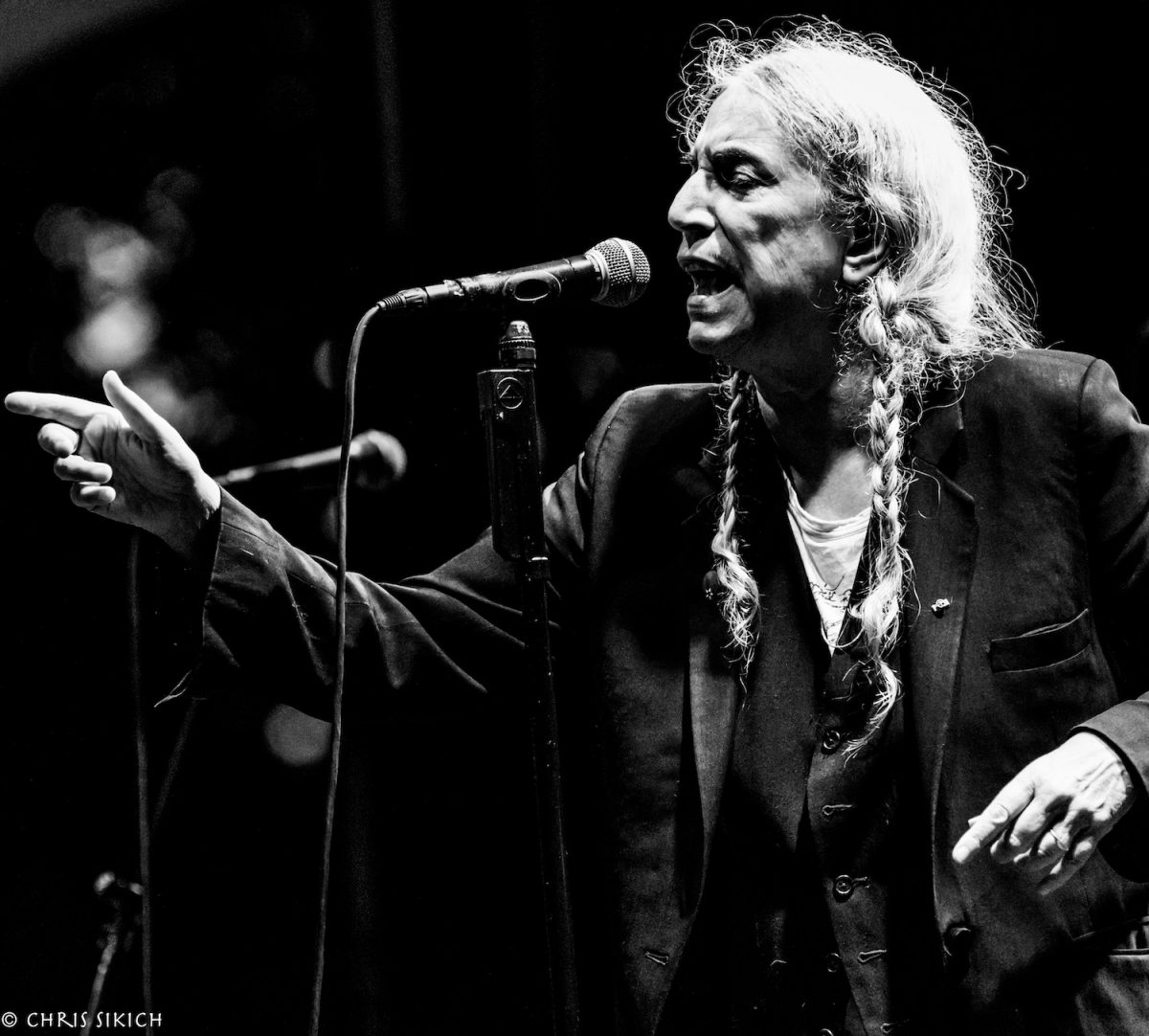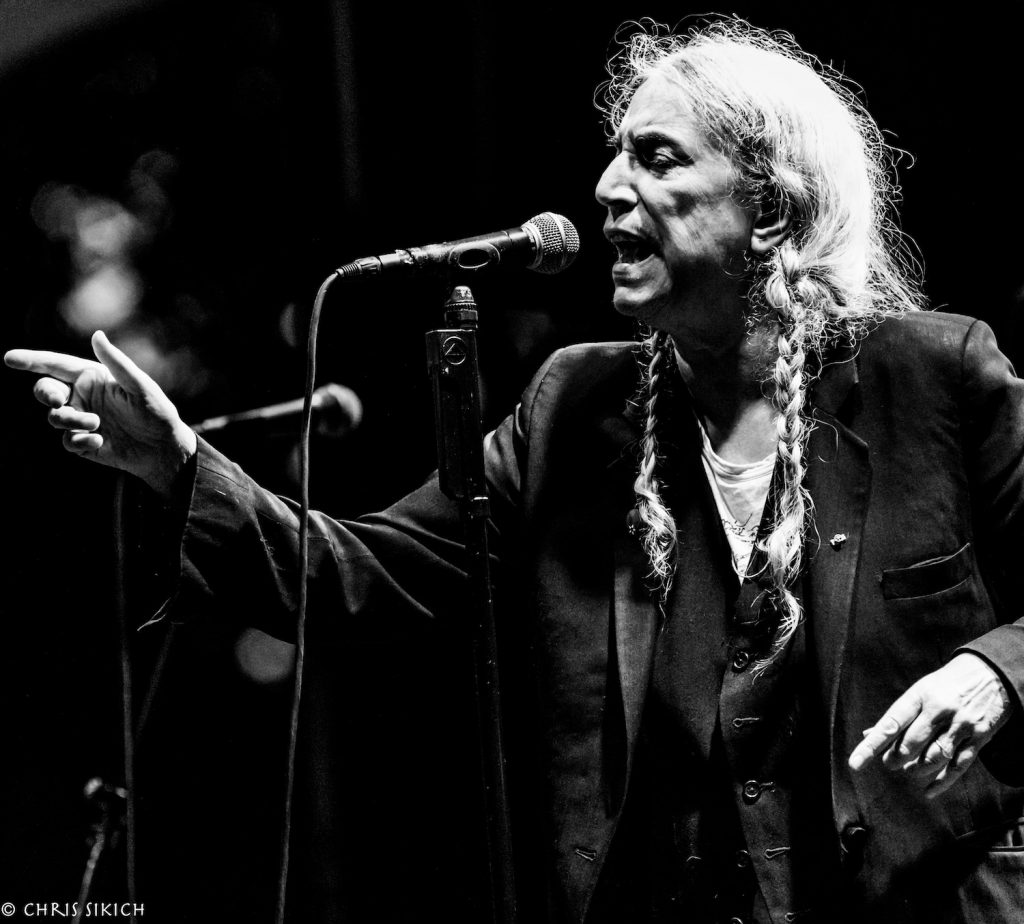
Audacious as she was as a young artist, Patti Smith never harbored any illusions of immortality. At 25, three years before crafting one of the first punk records from scraps of poetry, doowop, rock ’n’ roll, jazz and opera with her debut album, Horses, she filled the pages of Seventh Heaven with poems about the recent dead (“Edie Sedgwick”), the long dead and longer dead (“Renee Falconetti” and “Jeanne d’Arc”), the presumed dead (“Amelia Earhart”) and the not-dead-yet (“Marianne Faithfull”).
More recently, Smith has made a second, third and fourth career out of her own brand of memento mori, writing of lost friends in memoirs like Just Kids and Year Of The Monkey, photographing the relics of her literary forebears and posting Instagram homages to the dearly departed.
At 74, Smith carried countless souls in her heart as she and her band returned to Central Park’s SummerStage, the site of some of their most memorable performances, for the first time since COVID claimed the lives of more than 34,000 New York City residents and more than four million human beings.
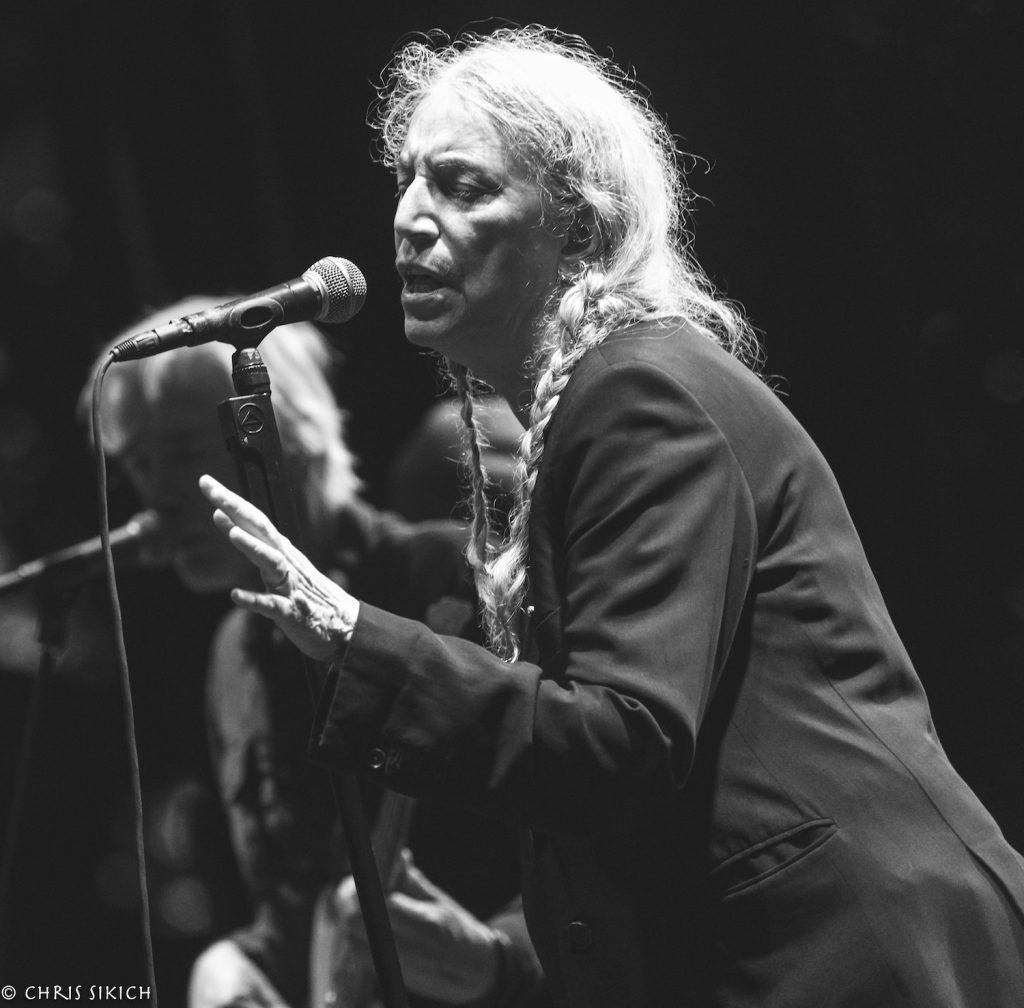
And yet, through the time-tested alchemy of Smith and her comrades—longtime guitarist Lenny Kaye, drummer Jay Dee Daugherty and bassist/keyboardist Tony Shanahan, along with Smith’s son Jackson on guitar and daughter Jesse on keys—the music sounded vital, the sentiments were passionate and the whole evening was a celebration of life.
Opening the show with “Grateful,” her elegy for Jerry Garcia, Smith underscored the inevitability of loss and the reprieve—however temporary it may be—for those of us fortunate enough to be not only still standing, but able to gather with our fellow fans, fully vaxxed and masked, on a gorgeous evening on the cusp of autumn.
“Ours is just another skin/That simply slips away,” Smith sang. “You can rise above it/It will shed easily.” And with that invocation, she laid to rest any petty resentments over the free concert’s entrance protocols or the disorganized queue, uniting the multigenerational audience in rapture and reverence, whether this was their first time worshipping at her feet or their 100th.
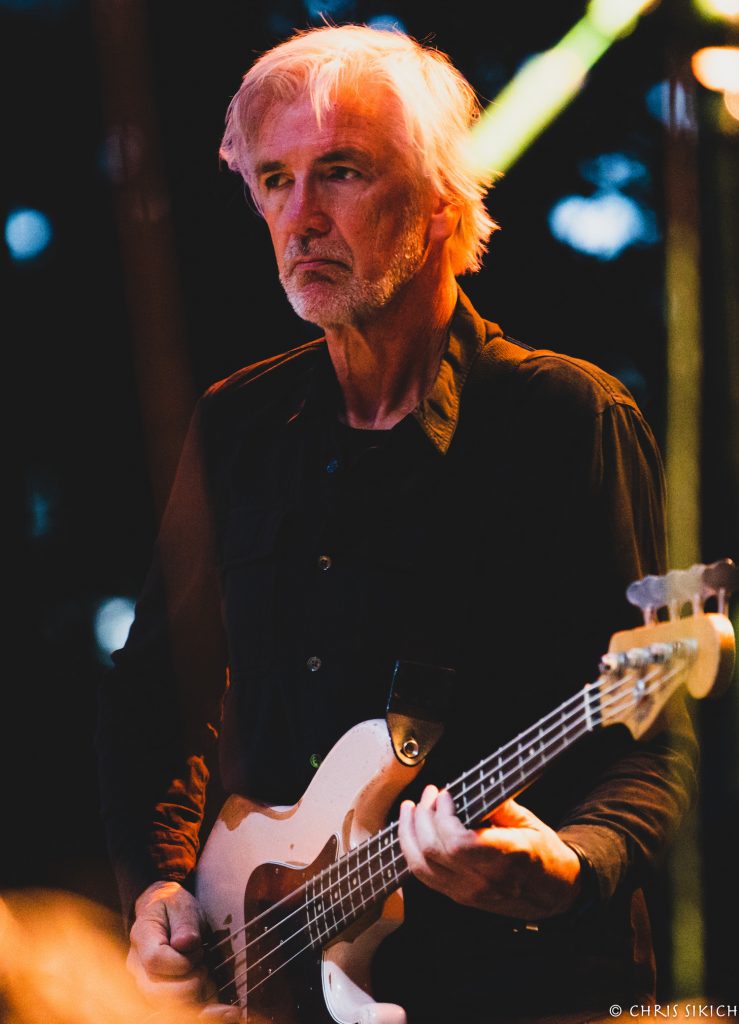
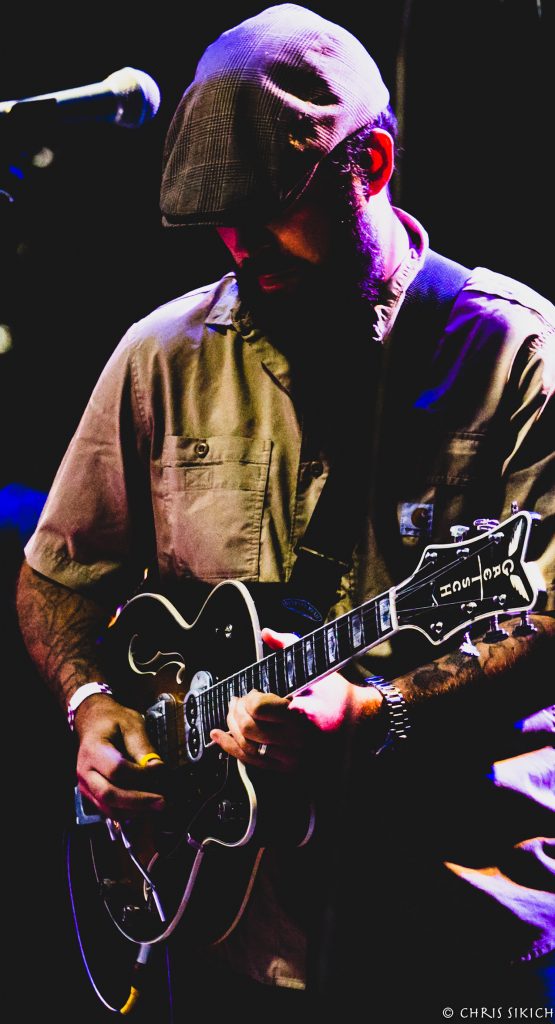
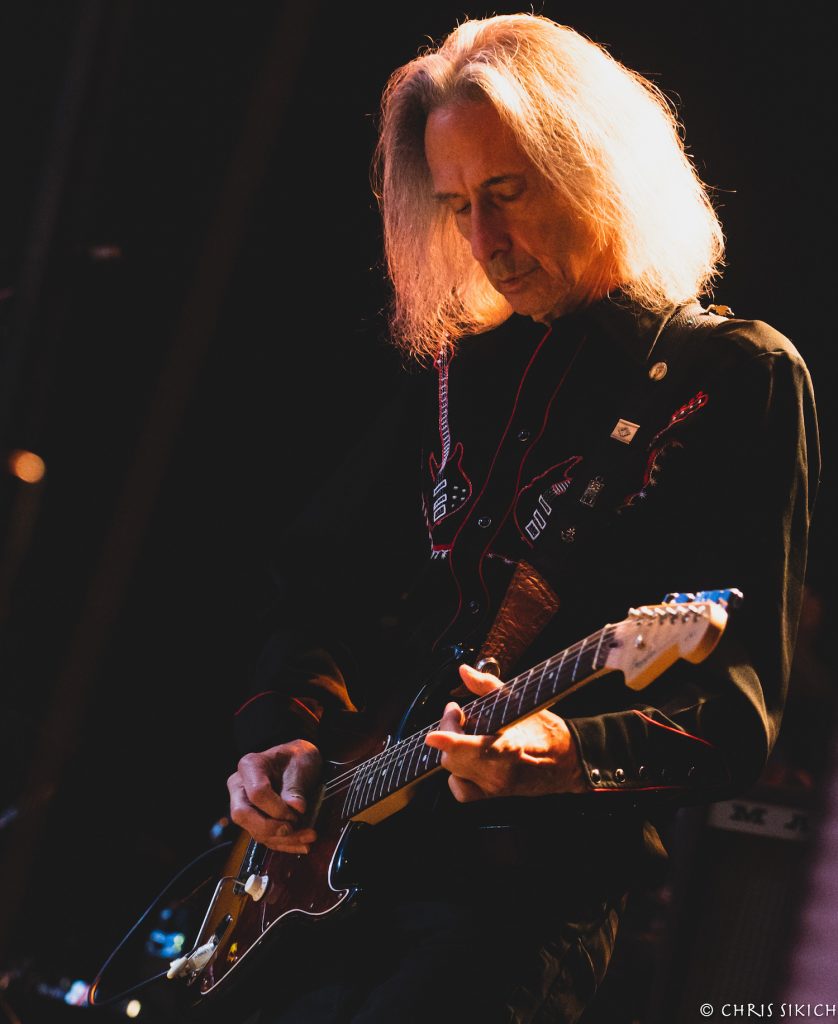
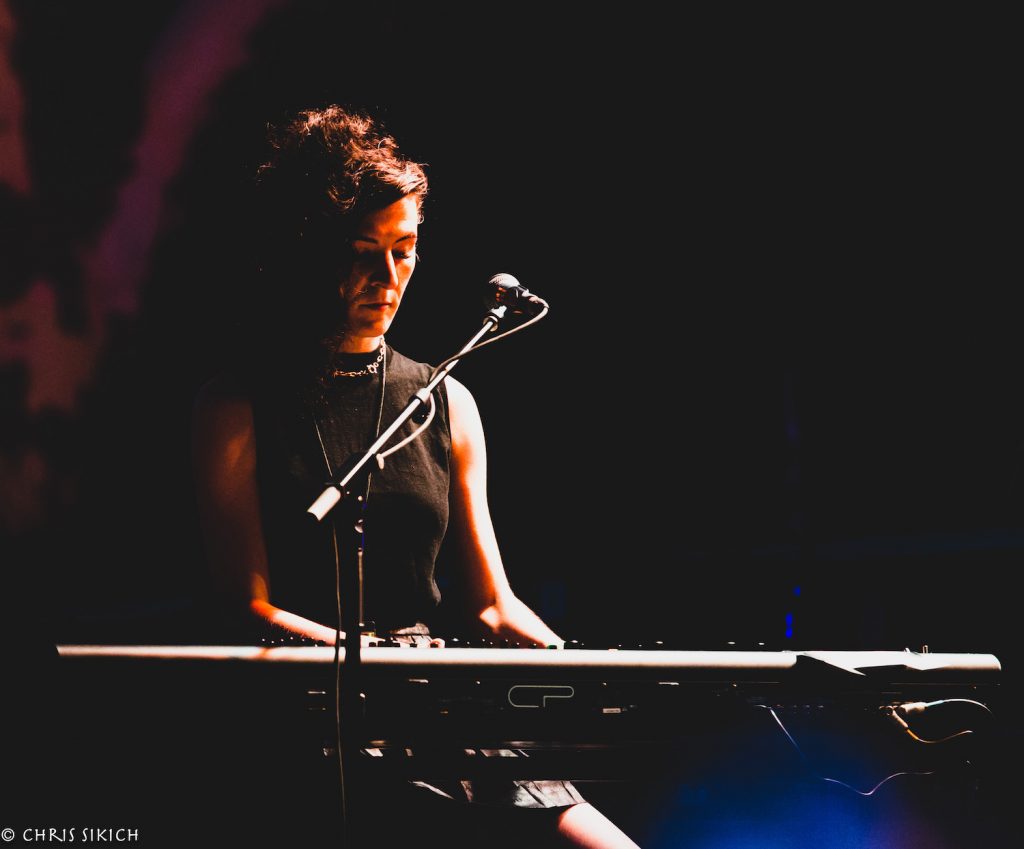
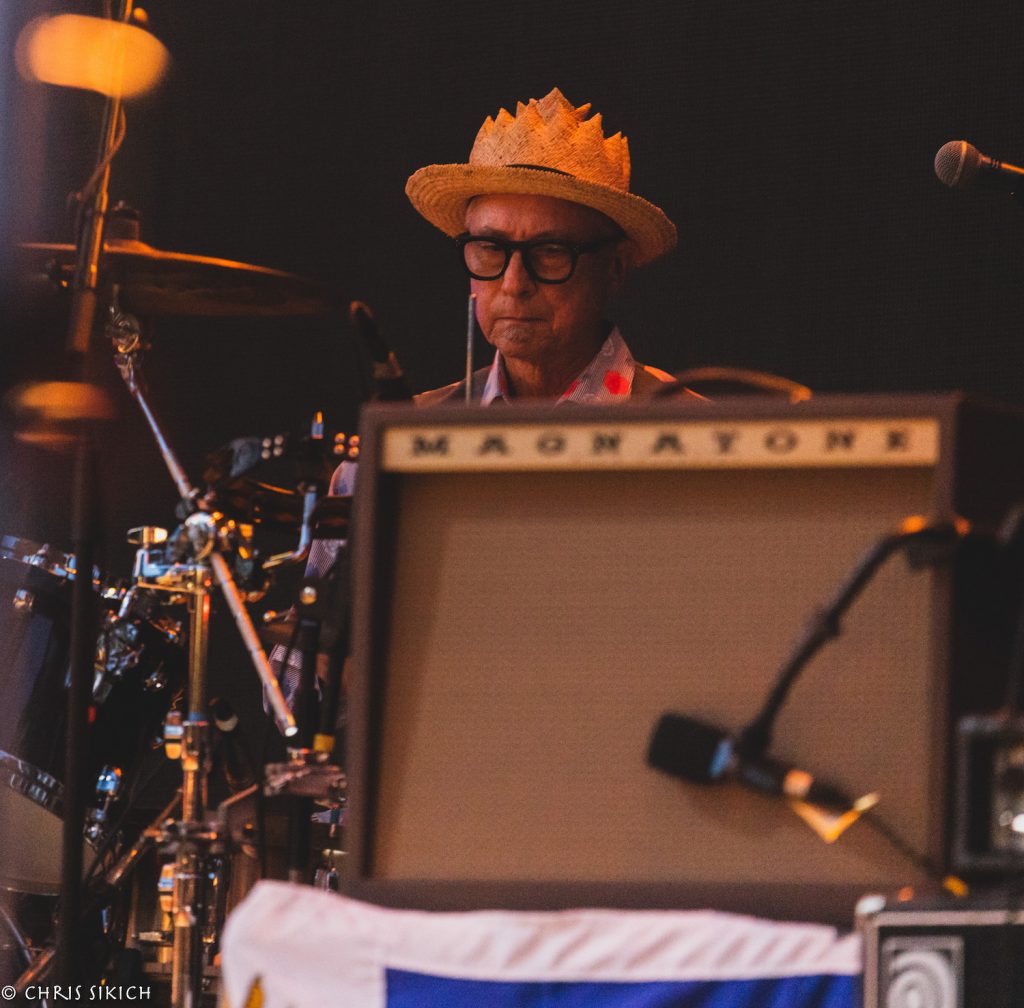
Dedicating the set’s second song, “Redondo Beach,” to Lee “Scratch” Perry, the band leaned into its reggae pulse (a motif that resurfaced for “Ain’t It Strange”), allowing plenty of time for Smith to savor the lesbian suicide drama that played out in the lyrics. The leisurely pace was perfect for contemplating Perry’s long life and lasting influence, the sudden death of the fictional young victim and whatever fate awaits us all.
If that sounds morose, it felt anything but; rather than wallowing in the undeniable tragedy we’re witnessing all around us, we can see ourselves as linked in a mystery unfolding in real time, each a part of one another’s stories even if we can’t yet tell exactly how we’re connected. Even if—maybe especially if—those connections won’t come too light until it’s too late for us to appreciate them.
As usual, Smith and Kaye held nothing back, with Daugherty and Shanahan working in tandem to tether them with precise beats and soulful-yet-grounded bass. The main set-ending “Land”/“Gloria” was more improvisatory, transportive, brutal and life-affirming than you could ever hope a medley of rock songs they first played more than 45 years ago could possibly be, while the version of Bob Dylan’s “One Too Many Mornings” the group started playing this year sounded both vibrant and true to its author’s voice.
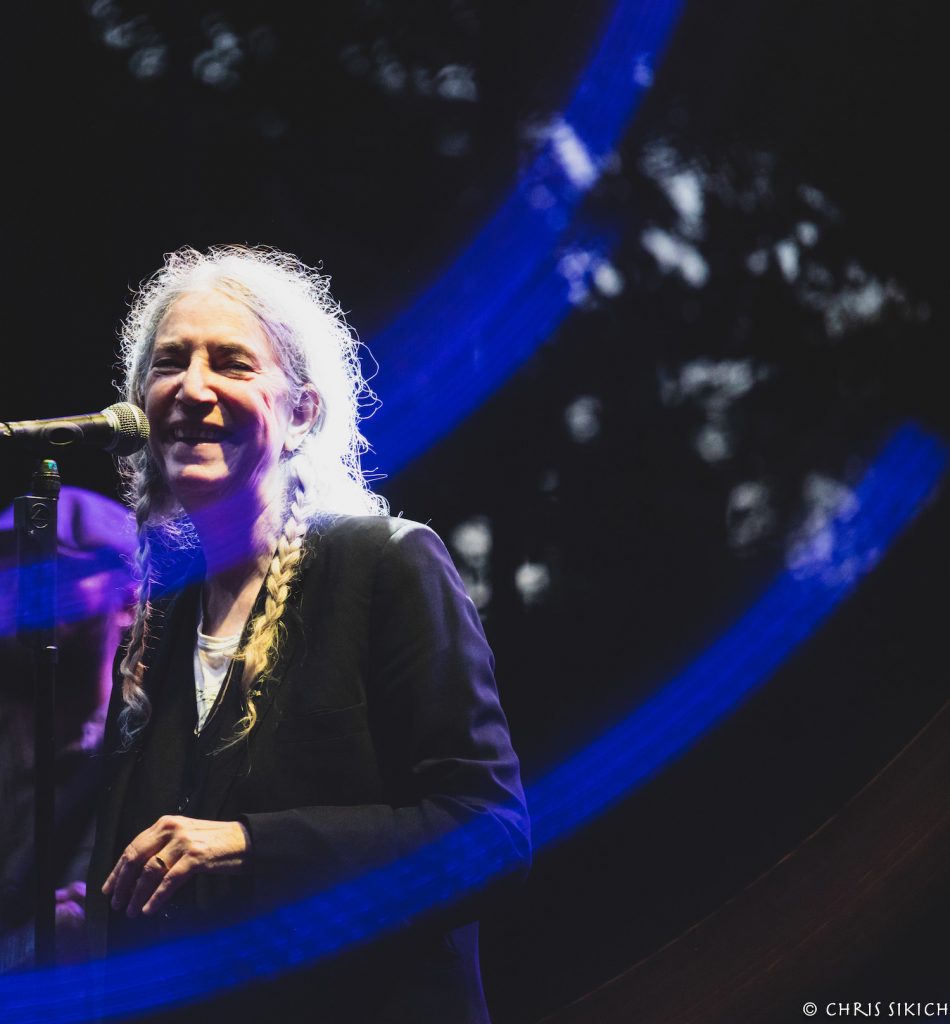
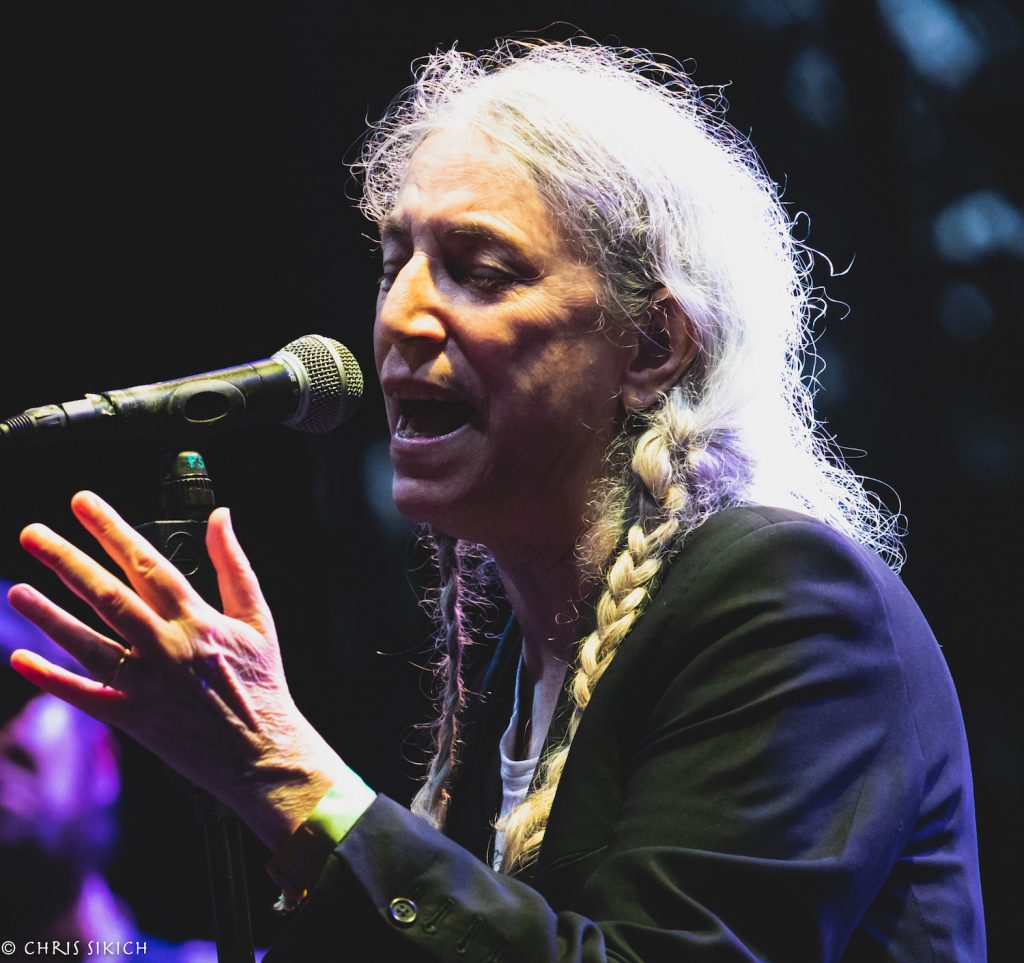
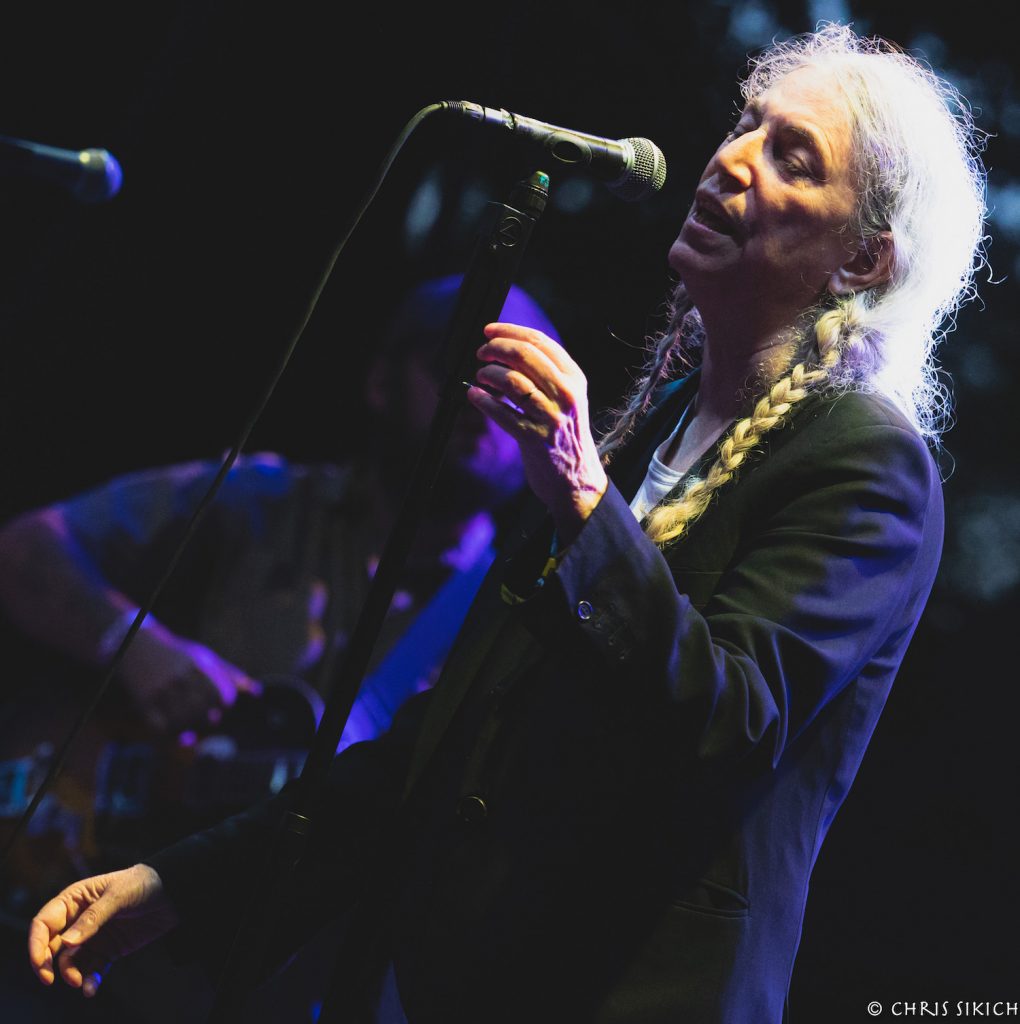
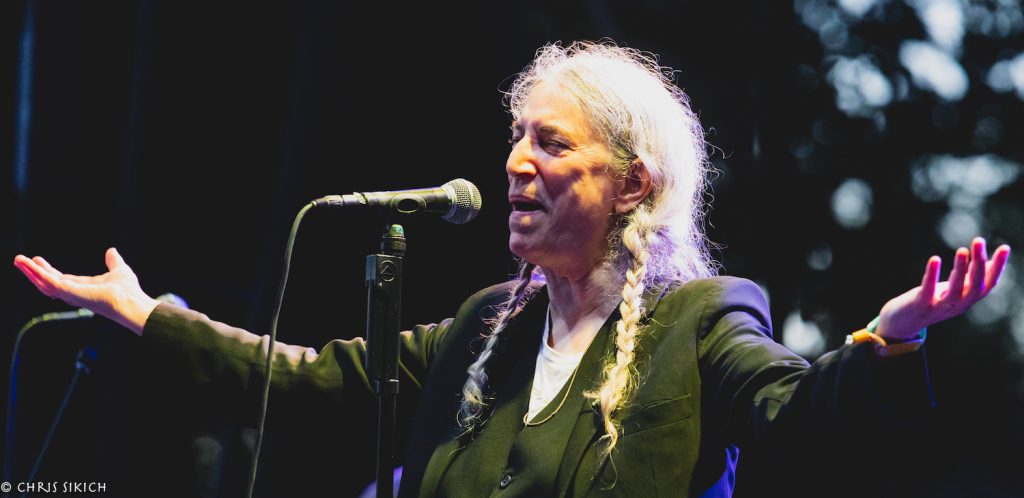
Elsewhere in the set, they demonstrated an abiding affection for the forces that give shape to our limited time on the planet, including lunar (in the form of Smith’s poem “Perfect Moon”), solar (a cover of Stevie Wonder’s “Blame It On The Sun”) and Gregorian calendar (“Happy Birthday,” an audience sing-along dedicated to George, a recognizable face to any front-row regular).
The presence of Jackson and Jesse Paris Smith clearly brings great pleasure to Patti, which was evident in how she beamed at her son whenever he effortlessly ripped on guitar and in the intensity that mother and daughter shared while playing “Pissing In A River,” the most jaw-dropping performance of the night.
Moreover, the siblings’ emotional investment moves the band in another dimension, as on the cosmic “Dancing Barefoot” and the lusty “Because The Night,” which cemented their parents’ relationship. Sending her biggest hit out to the memory of Fred “Sonic” Smith (who would have turned 73 the week of the show, had he not died at 46), Patti implored the crowd: “Give him a hand. He was our king.”
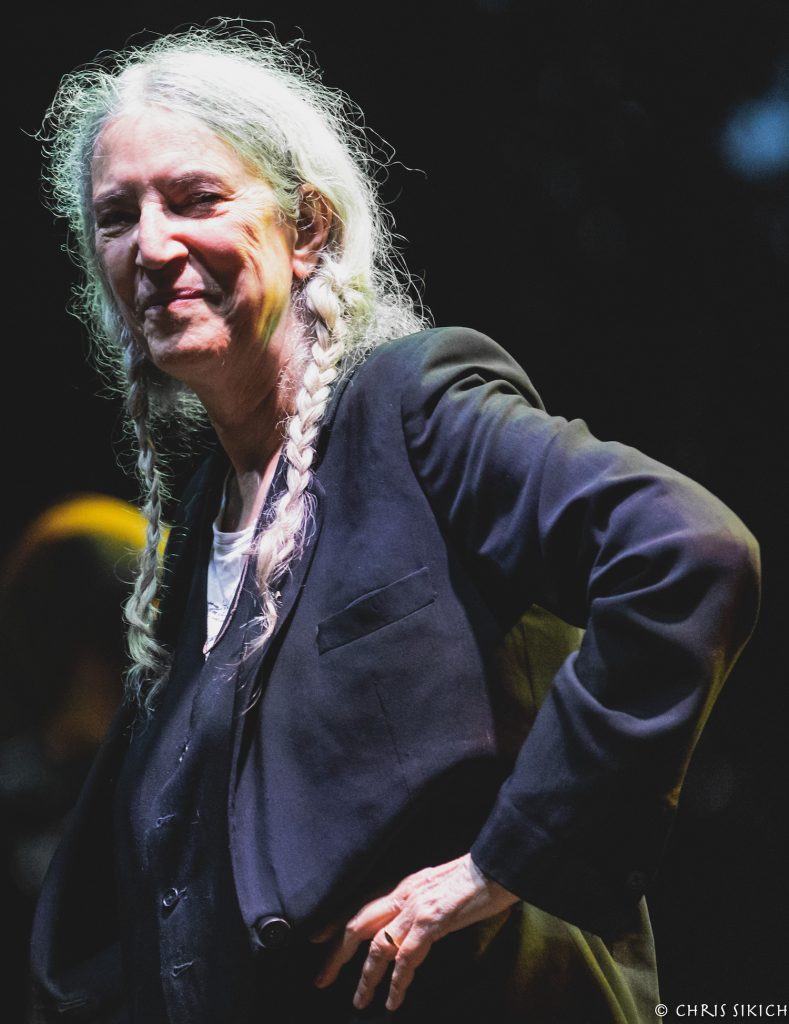
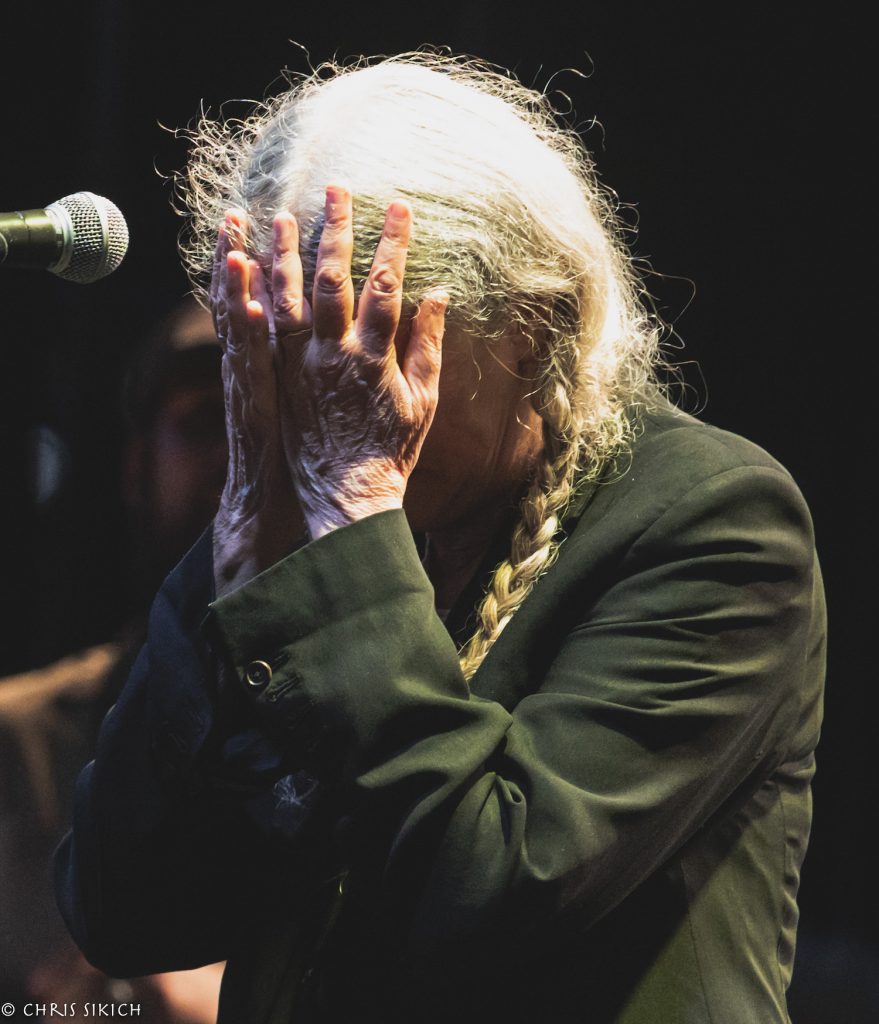
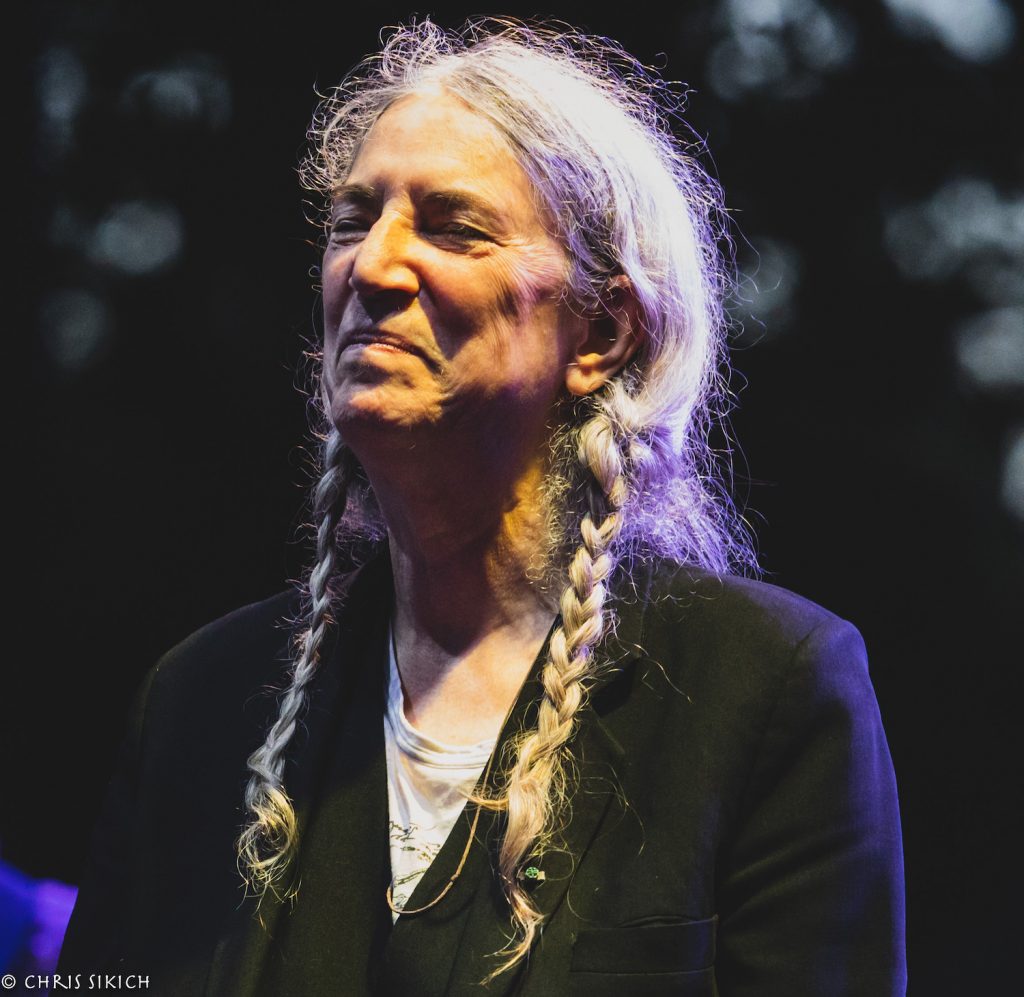
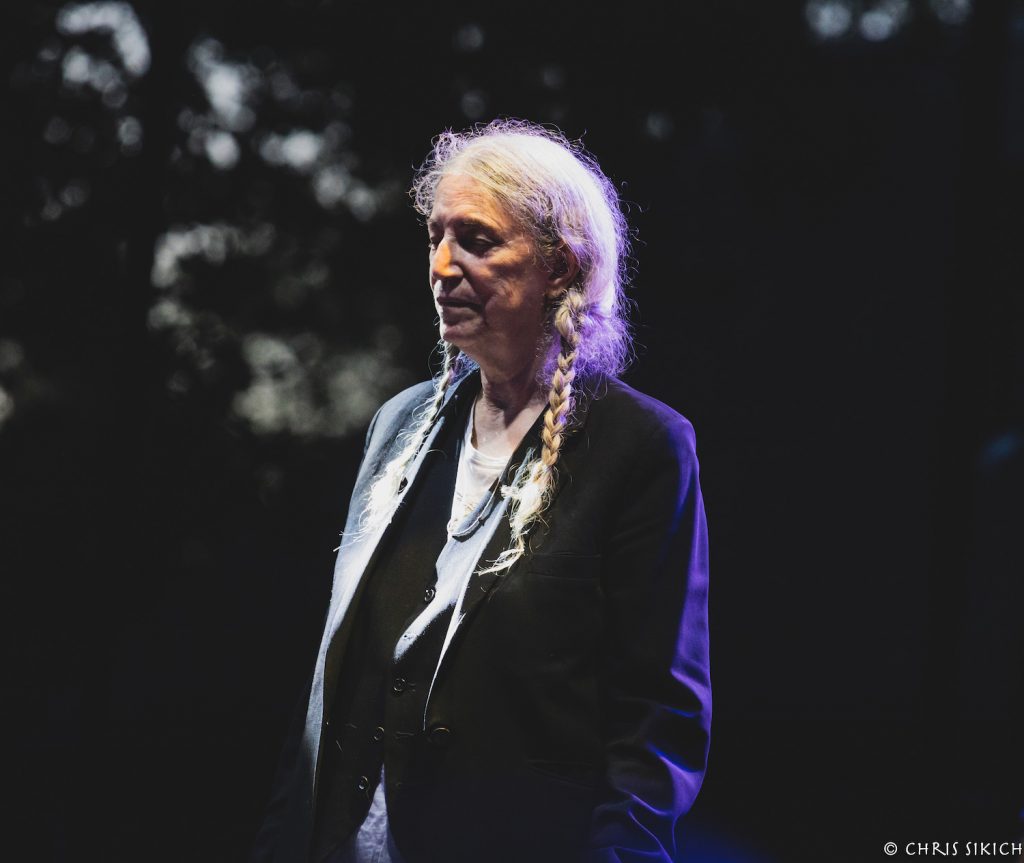
Above all, “Beneath The Southern Cross”—a song that’s never quite clicked for me before—finally found its way into my heart. Maybe it was those countless souls Smith carried into Central Park with her, or maybe it was the gradual accumulation of two and a half decades of dedications to those who’ve gone before us.
Maybe it was the spiritual weight of so many people dying unnecessarily over the previous year and a half, or maybe it was the wordless communion of Shanahan’s bass and Jackson’s guitar under the full moon. Dedicating the song to Charlie Watts, representing all the people we’ve lost, Patti offered a benediction and a wake-up call: “Where there is life, there is the possibility for change.”
Seize the possibility.
—M.J. Fine; photos by Chris Sikich
